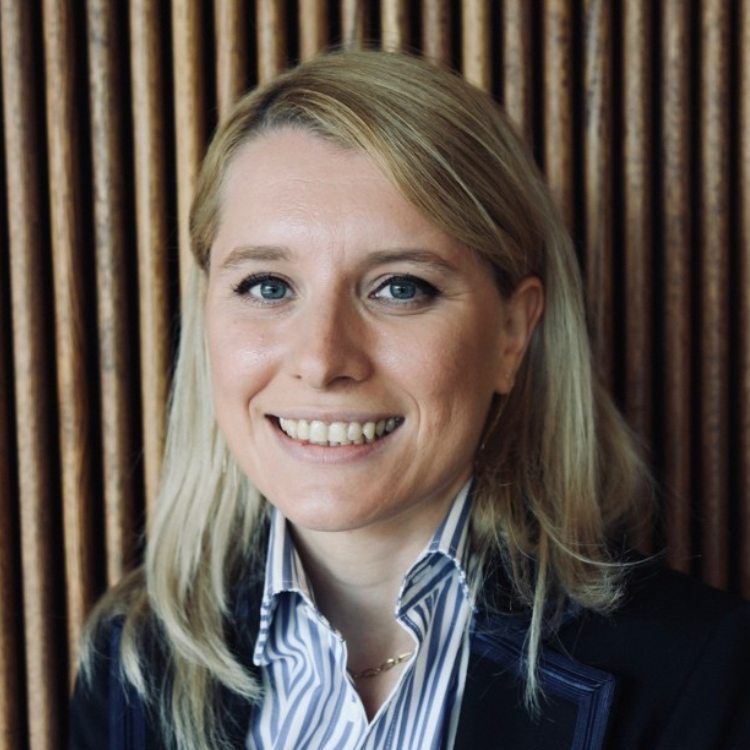Agenda - 2025
The Humanitarian Finance Summit will return to London in February 2026.
If you are interested in taking part, please contact andreas.schonning@aid-expo.com
8:30 – 9:20 | Registration Opens
9:20 – 9:30 | Opening Remarks
Simon Meldrum
Innovative Finance, Private Sector & Innovation Unit, IFRC & Executive Director, HFF
Nicholas Rutherford
Managing Director
AidEx
9:30 – 10:00 | Opening Keynote Address
Rt Hon Mr Andrew Mitchell
MP for Sutton Coldfield, Former UK Minister for International Development, Deputy Foreign Secretary and Shadow Foreign Secretary
10:00-10:30 | Insights From the Field - Mapping the Opportunities, Barriers, Instruments and Players So Far
This session will map out the current humanitarian impact finance landscape, showing who does what, at what stage, and with what investment criteria. This presentation will draw from the report to provide concrete examples so far for change agents to develop projects that fulfil humanitarian objectives in more stable contexts of protracted crisis.
Vanina Farber
elea Professor for Social Innovation and Dean of the EMBA
Programme
Institute for Management Development (IMD)
Andreea Anastasiu
Executive Director Government Outcomes Lab (GO Lab)
University of Oxford
10:30-11:30 | Reimagining the Financial Markets to Enhance Humanitarian Impact
With over 1 billion living in fragile and conflict affected settings, there is a critical need for any socially aligned or impact investing to recognise, address, and effectively deploy within humanitarian contexts to support vulnerable communities. While there’s been significant growth among investors for sustainable and impact-driven investing, it is not yet matched by an active pipeline in lower-income countries & FCA settings.
This panel will discuss catalysts and impediments to increase the social benefit finance, approaches to cross-sector collaboration, and expanding innovative finance beyond traditional humanitarian players and funders as well as overcoming the main challenges of developing investable opportunities.
Haje Schütte
Deputy Director
Organisation for Economic Co-operation and Development (OECD)
Sir Paul Collier
Professor of Economics and Public Policy
Blavatnik School of Government, Oxford University
Kelly Knight
Counsel
Reed Smith
Simon McGregor
COO & CFO
ForAfrika
Veronika Giusti Keller
Head of Impact Management
BlueOrchard Finance
11:30 – 12:00 | Coffee Break
12:00-13:00 | Discussion on Blended Finance for Humanitarian Challenges & Crisis; Potential for Scale
What is the potential of blending humanitarian capacity and funds with capacity and financing from public, and private investors to mobilise larger and more sustainable resources to achieve positive impacts for populations affected by fragile and conflict-affected situations?
With reference to concrete examples, this session will debate possible opportunities for blended finance in humanitarian and fragile settings, how humanitarian organisations can engage and take different roles in blended finance structures, and what bottlenecks and challenges needs addressing if to attract “humanitarian” blended finance at scale.
Dr. Fawad Akbari
Senior Director, Humanitarian Innovation and Programme Optimisation
Grand Challenges Canada
Ellen Brooks
Director for Innovative Finance
International Rescue Committee (IRC)
Ariane Pevide
Director, Global Blended & Climate Finance
The Bank of Tokyo-Mitsubishi UFJ, Ltd (MUFG)
Anne-Sofie Munk
Director
Humanitarian Innovative Finance Hub (HIFHUB) - hosted by the Danish Red Cross
Simone Utermarck
Senior Director, Sustainable Finance
International Capital Market Association (ICMA)
13:00 – 14:00 | Networking Lunch
14:00-14:30 | Fireside Chat: IFFIm - from the beginning to the future
This session will delve into the transformative journey of IFFIm, highlighting its evolution and impact as a pioneering financial mechanism supporting global vaccine initiatives. IFFIm Board Member Rachel Turner will share insights from the inception of IFFIm and unpack its strategic role in accelerating vaccine coverage and responding to humanitarian crises through flexible funding solutions.
Rachel Turner
Board Member
International Finance Facility for Immunisation (IFFIm)
Tessa Walsh
Green/ESG Financing Editor
IFR/London Stock Exchange Group (moderator)
14:30-15:00 | Fireside Chat: Disaster Risk Financing and Insurance (IFRC-DREF Insurance)
The International Federation of Red Cross and Red Crescent Societies’ Disaster Response Emergency Fund (IFRC-DREF) is a vital fund that provides immediate funding for National Red Cross and Red Crescent Societies when disaster strikes, especially for smaller scale emergencies that may not attract global attention. Previously, the Fund could run dry before year-end in periods of excessive or unanticipated demand, prompting the IFRC to secure a groundbreaking – and humanitarian sector first – indemnity insurance policy to backstop the fund. Now, for the first time ever, a single, worldwide, commercial indemnity insurance policy will pay the emergency humanitarian costs of disasters.
Florent Del Pinto
Head of DREF, Information Management and Quality
IFRC
Bridget Gainer
Global Head Public Affairs & Policy
Aon
Tessa Walsh
Green/ESG Financing Editor
IFR/London Stock Exchange Group (moderator)
15:00-16:00 | Linking Private Markets and Climate Finance to Improve Resilience and Emergency Response for the Most Vulnerable Countries
Over the last decade, the dramatic consequences of climate change induced disasters have significantly widened the crisis protection gap, especially for FCA countries and vulnerable communities. The rising cost of these disasters pose increasing risks to sustainable development, particularly in low-income countries and the most vulnerable communities, leading to diminished resilience against shocks and exacerbated climate impacts.
Despite opportunities for action, climate finance has yet to be leveraged in a way that maximizes synergies between climate adaptation and humanitarian response in fragile states. This session will explore new inclusive, multi-stakeholder and cross-sector approaches that have been effective in financing responses and close the financing gap through innovative financing instruments.
Lance Bartholomeusz
General Counsel
UNHCR
Dr. Annette Detken
Head of ISF Management and Climate Risk Analysis
InsuResilience Solutions Fund
Caroline Birch
Senior Advisor
Humanity Insured
Dr. Daniel Clarke
Executive Director
Centre for Disaster Protection
Christina Bennett
CEO
START Network
16:00-16:30 | Coffee Break
16:30-17:30 | Closing Plenary: CEO Panel - What's Next for Humanitarian Financing?
The urgent need for bold and transformational change in humanitarian financing has never been greater or clearer. It’s imperative that we develop actionable humanitarian financing mechanisms at scale that reflect today’s political and economic realities but also pave the way for a sustainable future.
Hanna Jahns
Director B - Strategy and Policy
DG ECHO - European Commission
Béatrice Butsana-Sita
CEO
British Red Cross
Lasitha Perera
CEO
Development Guarantee Group (DGG)
Florian Kemmerich
Managing Partner
KOIS
Simon Kingston
Co-Head of Social Impact and Education Sector
Russell Reynolds
Liz Henderson
Global Head of Climate Risk Advisory
Aon





























